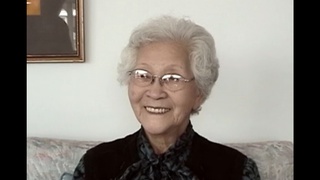Interviews
Citizen participation
There are a lot of countries that call themselves democracies, but the thing that makes the democracy of the United States so distinctive from any other in the country -- in the world, is that it requires citizen participation. And so there were just, I mean, this was really a bottoms-up grassroots effort. Here's something that impacted on 123,000 people back in 1942, out of a population of 200 million people. Who cares? Forget it. But yet this thing kept on bubbling up because working at the grassroots level all across the country. And so there were just a lot of people.
I remember from Seattle, Mrs. Kinoshita, Cherry Kinoshita, being one of those who was always agitating for citizen groups to get involved in this thing. And frankly, there were some of these groups that, who were also lambasting me for taking the legislative approach. Bill Hohri just ripped me a, ripped me a new one, and he thought I was a sellout. Well, he thought my brother-in-law, Mike Masaoka, was a sellout. That he said, he said, "He's the one who put us in camp." Give me a break.
And so, I mean, we were having to swim against the tide, too, within the community. And some of the, frankly, awful things that Bill Hohri said about JACL, Mike Masaoka, George Inagaki, Dr. Tom Yatabe, Mas Sato, all these, and against those of us in the Congress who were pushing the legislative approach, it was not a, it was not a -- even for people like Cherry Kinoshita and people, there was a citizen group in San Jose that was outside some of these other groups, they were having to speak in opposition to what other Nisei groups were doing. But, so it's hard to point out individuals.
Date: July 4, 2008
Location: Colorado, US
Interviewer: Tom Ikeda
Contributed by: Watase Media Arts Center, Japanese American National Museum











